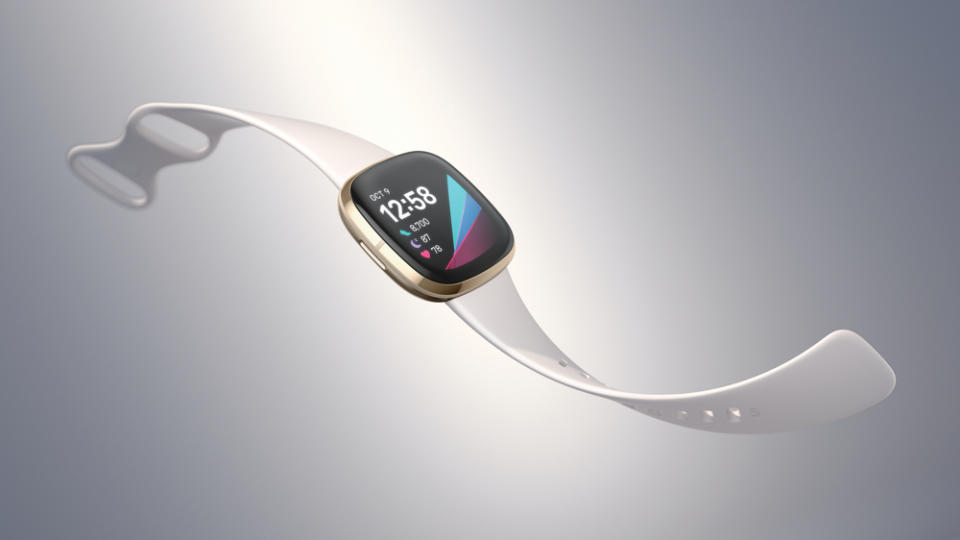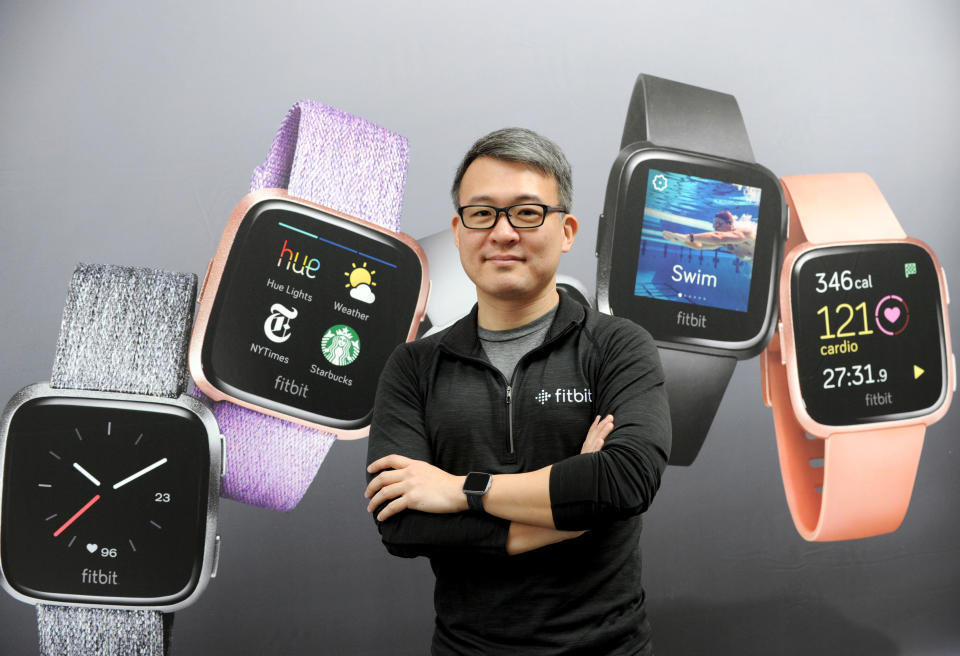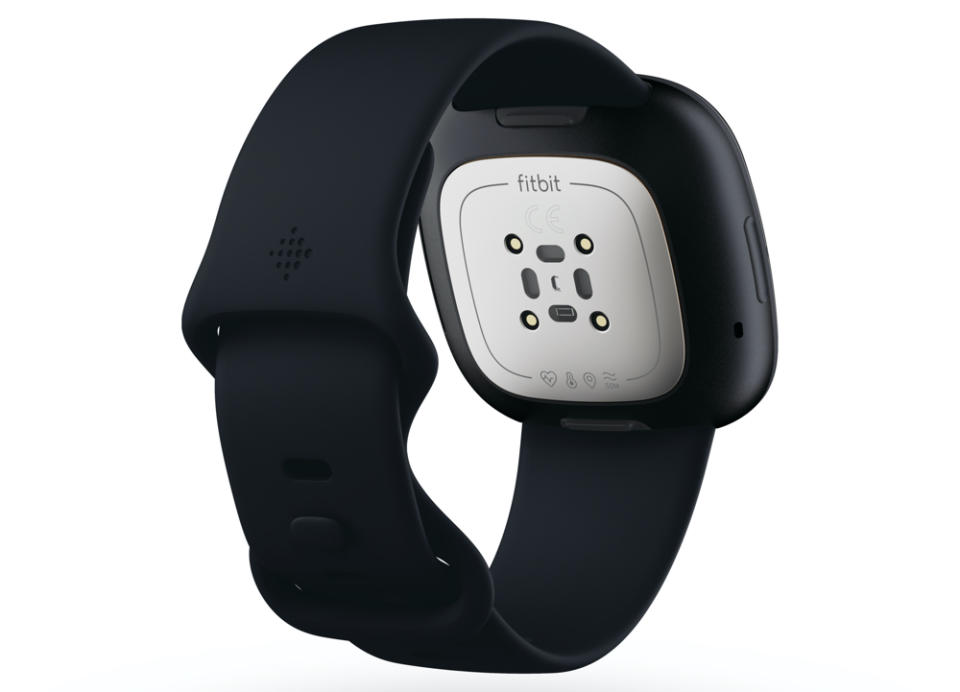Fitbit launches new Sense smartwatch to help track and reduce your endless stress

Fitbit (FIT), which is in the midst of being acquired by Google (GOOG, GOOGL), announced three new wearables on Tuesday, including its most advanced smartwatch yet.
The watch, called the Fitbit Sense is designed to track everything from your body temperature, to your heart rate and rhythm, to your sleep, and even your stress levels using a built-in electrodermal activity (EDA) sensor that can tell when you’re starting to sweat before you even realize it.
“I think one of the important things to take away from our fall launch is that it really underscores our continued evolution of being a pure fitness tracking company to a health company,” Fitbit CEO James Park told Yahoo Finance.

“And it’s really the culmination of a lot of the new sensors that we’re bringing into the fall products, and then also the software experiences on top. So we’re obviously really excited about our EDA sensor. It’s the first in its class; it took a lot of R&D to get to this point,” he added.
And it’s that kind of work that Park said is what he believes drew Google’s interest in the first place.
Making ‘Sense’ of stress
The Fitbit Sense, which is available for pre-order today for $329 and launches in late September, is Fitbit’s most advanced smartwatch to-date. It features a redesigned body and a larger display that the company says is nearly edgeless.
The Sense’s stainless steel frame features two electrodes that you cover with your hand when you want to use the EDA sensor to begin measuring your stress level. According to Park, the EDA sensor sends a microcurrent through your skin to measure the change in electrical resistance as your palm sweats. The more you sweat, the more stress you’re likely under.

You could use that information to recognize that you should meditate or try breathing exercises to help lower your stress in the moment, and over time, determine what best lowers your stress most.
There’s also a new Stress Management feature in the Fitbit app for Sense users, which provides you with a Stress Management Score calculated using your heart rate, sleep, and activity levels. The score is based on a 0 to 100 scale with higher numbers being better and lower numbers worse.
The company says its Fitbit Premium members will also get detailed breakdowns of their scores based on things like heart rate, heart rate variability, electrodermal activity, impact of physical activity, and sleep patterns.
Park says that there’s been a greater interest in stress mitigation since the coronavirus pandemic took hold, which makes the Sense’s EDA and the company’s Stress Management feature more relevant.
“There’s a direct health impact of COVID-19, but there’s also the secondary impact of the pandemic and the quarantine around people’s mental health and stress,” Park said, adding that being forced to forgo normal social interactions can increase stress on users.
In addition to the EDA sensor, the Sense, and Fitbit’s new Versa 3, get the company’s improved heart sensor and heart rate algorithm, which the firm says is its most accurate for running yet. The Sense also uses the two electrodes on its top and a secondary electrode on its bottom to look at your heart rhythm to determine if you may have atrial fibrillation, or an irregular heartbeat, via the ECG app.

The company says it’s still waiting on FDA certification for the app, and that the feature will only be available in the U.S. until it receives authorization in other countries.
Additional sensors are able to track your temperature and blood oxygen level tracking while sleeping.
The Sense also features an AMOLED display, can be used in up to 50 meters of water, has built-in GPS functionality, 6 days of battery life, and includes both Google Assistant and Amazon Alexa voice capabilities.
Versa and Inspire get hot updates
Outside of the Sense, Fitbit is also launching the Versa 3 for $229. The follow up to the Versa 2, the Versa 3 now features a built-in microphone and speaker, on-board GPS, the same improved heart tracking found on the Sense, and Google Assistant and Alexa integration.
Fitbit says the Versa 3 will also get the same 6 days of battery life as the Sense.
Then there’s the Inspire 2. A pure fitness tracker, the slim device offers 24/7 heart rate tracking and can give you information on your sleep, menstrual health and more.
The Inspire 2 costs $99 and is available alongside the Versa 3 and Sense.
We’ll bring you more on Fitbit’s latest watches and tracker when we get our hands on some review units in the coming weeks.
Got a tip? Email Daniel Howley at [email protected] over via encrypted mail at [email protected], and follow him on Twitter at @DanielHowley.
More from Dan:
A majority of Americans think social media sites are politically bias: Report
What the heck is happening with Apple, Google, and ‘Fortnite’?: Tech Support
Apple faces an App Store reckoning amid gaming and tech uprising
Follow Yahoo Finance on Twitter, Facebook, Instagram, Flipboard, SmartNews, LinkedIn, YouTube, and reddit.
